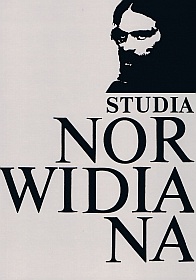Czy w czasach „posthumanistyki” można uprawiać antropologię literatury?
Abstrakt
The author analyzes Kazimierz Świegocki's book with respect to the most important changes in modern humanities – especially to the anthropological turn, that is the literary scholars' interest in the methods of cultural as well as comparative studies. Kłobukowski interprets Świegocki's comparative study on two planes – as an intriguing and sometimes innovative study of great Polish poets who participated in creating the literary tradition of the 19th and 20th centuries, and also as an attempt at building anthropology of literature using modern methods, but also deeply rooted in the philological tradition – based on the concept of subjectivity, whose vision may be reconstructed on the basis of the literary text. The reviewer thinks that the construction of the argument based on juxtaposing two different types of poetical anthropology that may be recognized in Mickiewicz's and Norwid's work is one of Świegocki's most interesting ideas. Świegocki's proposition seems advisable both to those who study Romanticism, and to theoreticians of literature. A vigorous and elegant style of the book makes it also recommendable to students, or even to people who are not “professionally” connected with literature.
Copyright (c) 2012 Studia Norwidiana

Utwór dostępny jest na licencji Creative Commons Uznanie autorstwa – Użycie niekomercyjne – Bez utworów zależnych 4.0 Międzynarodowe.





